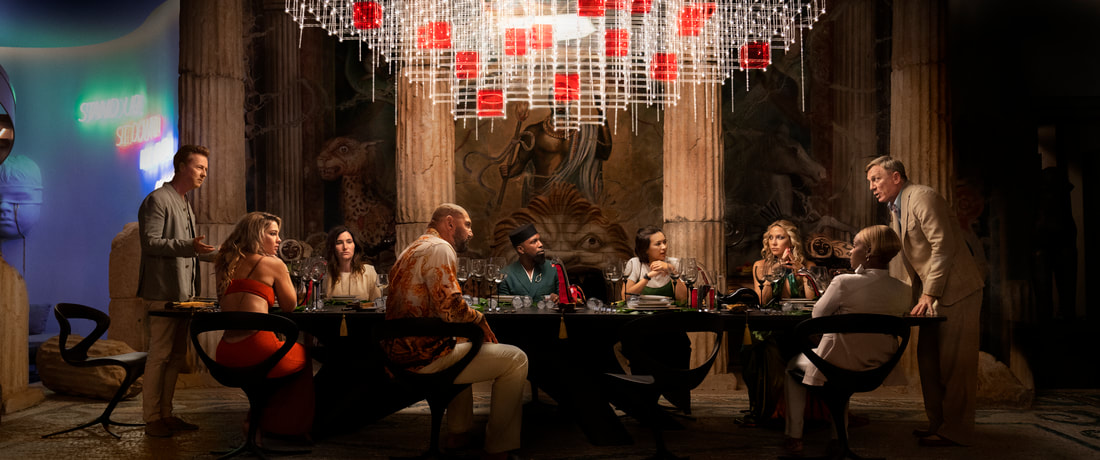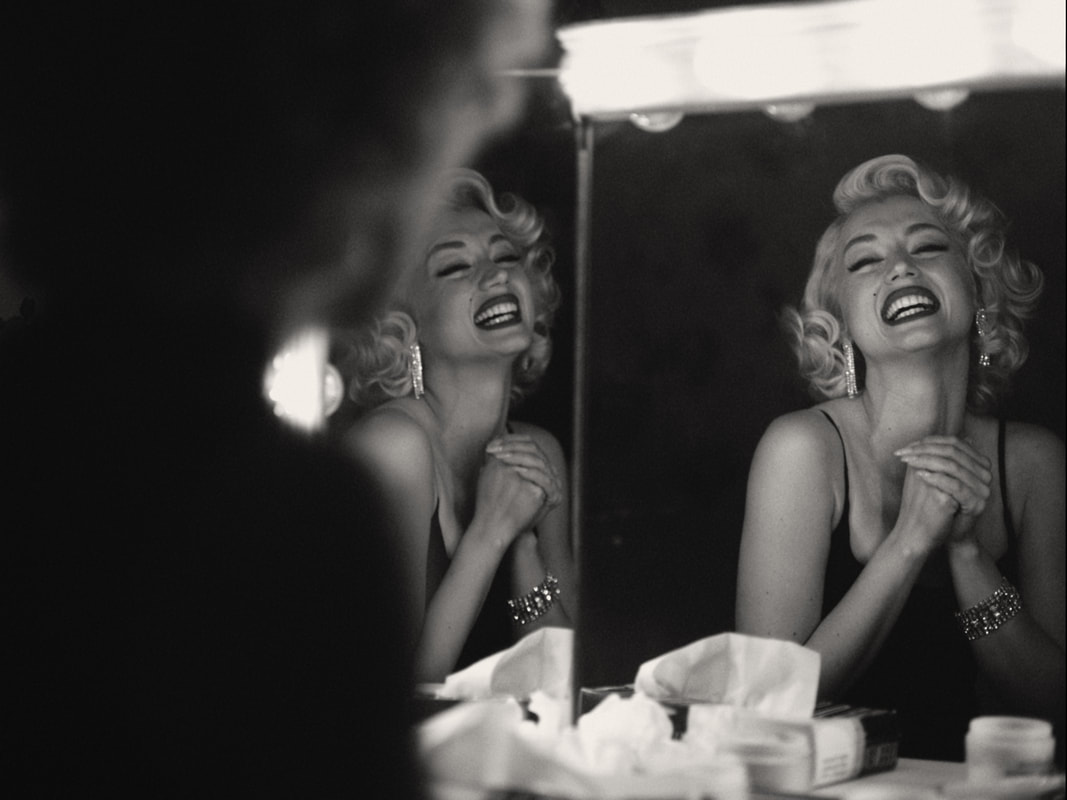You’re Invited to a Deadly Fun Party: Stream "Glass Onion: A Knives Out Mystery" on Netflix12/18/2022  (L-R) Edward Norton as Miles, Madelyn Cline as Whiskey, Kathryn Hahn as Claire, Dave Bautista as Duke, Leslie Odom Jr. as Lionel, Jessica Henwick as Peg, Kate Hudson as Birdie, Janelle Monae as Andi, and Daniel Craig and Benoit Blanc in GLASS ONION: A KNIVES OUT MYSTERY. Cr. John Wilson/Netflix © 2022. Rian Johnson’s Knives Out (2019) doesn’t need a sequel. It’s a hilarious and delightfully stylized standalone film that showcases Johnson’s creative writing skills and directorial flair. It has an unbeatable cast, side-splitting one-liners, and a clever story that keeps us guessing until the very end. Why would any filmmaker try to match that success with a second movie? After all, sequels and follow-up movies are usually disappointing, and
Johnson had already set the bar pretty high with Knives Out. Maybe he wanted to challenge himself as a writer and director, or maybe he just couldn’t let go of the delightful main character, detective Benoit Blanc (Daniel Craig), and the colorful world that he inhabits. Whatever Johnson’s reasons may have been, he made the right decision in developing a second Knives Out movie. Glass Onion: A Knives Out Mystery exceeds expectations and asserts itself as a movie that’s just as fun, just as funny, and just as unique as its predecessor. Much like the beautiful Greek island where the cast of characters convenes for their murder mystery party, Glass Onion is the perfect mental escape. The script is clever and packed with intriguing, subtle details, and the movie as a whole is a treasure trove of fun, feel-good entertainment.
0 Comments
Content / trigger warning: Blonde contains flashing and strobing effect imagery that may be triggering to those with photosensitivity. Blonde is rated NC-17 for some sexual content. It contains frightening and intense images involving abuse, assault, and abortion. These topics are briefly discussed in the review below. Blonde isn’t the feel-good biopic you’re looking for. Nor is it a sentimental tear-jerker. Andrew Dominik’s 2-hour and 46-minute adaptation of the Joyce Carol Oates novel is difficult, depressing, and demanding. It’s the kind of movie that made me tell my parents, “Don’t watch it, you won’t like it” (although the MPAA rating alone would have been enough to turn them away). But as I watched, I also felt that I, as a critic, wasn’t supposed to like it. With so many unconventional stylistic elements at play and so much controversial content, I felt like the only “correct” review I could give would be to call the movie problematic and pretentious. However, that review wouldn’t be genuine. There are certain shots, sequences, scenes, and techniques in Blonde that really don’t work — and yet, I found myself completely engaged with the film, not wanting it to end. It wasn’t until the JFK blowjob scene when a male critic in the audience burst out laughing (to my extreme annoyance, as I was sympathizing with Marilyn’s perspective and admiring what the scene had to say about sexual power dynamics) that I figured out what Blonde was doing right. It was making me aware of myself as a woman, as a critic, as a movie lover, and as a human. Blonde gave me one of the most powerful and visceral experiences I’ve had at the movies in a long time. For that reason, I don’t want to focus on all the little things that didn’t work. Instead, I want to focus on a few big things that it got right. After all, any movie that makes you more aware of yourself has to be doing something right.
|
"Our embodied spectator, possibly perverse in her fantasies and diverse in her experience, possesses agency...finally, she must now be held accountable for it." Categories
All
|

